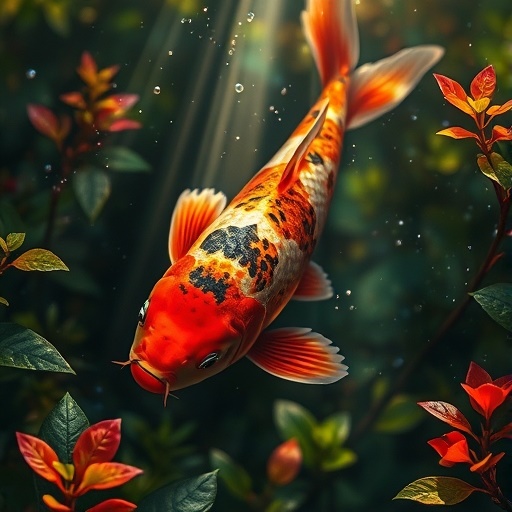Koi fish, with their vibrant colors and graceful swimming movements, are a symbol of beauty, strength, and perseverance. Originating from East Asia, particularly Japan, these fish have captivated the attention of people around the world. Not only are koi known for their visual appeal, but they are also rich in cultural and symbolic significance.
Koi fish are most commonly associated with Japanese gardens, where they can be seen swimming in serene ponds or streams. Their presence in these spaces adds to the tranquility and beauty of the environment, making them a favorite among gardeners and nature enthusiasts. The koi’s bright colors, such as red, orange, yellow, and even white, are striking, creating a harmonious contrast with the green foliage and rocks in the garden.
Beyond their aesthetic appeal, koi fish hold deep symbolic meaning in Japanese culture. They are often seen as symbols of good fortune, longevity, and success. In Japanese mythology, koi are believed to have the ability to swim upstream and even transform into dragons after overcoming a waterfall. This myth represents strength, determination, and the ability to overcome challenges, which is why koi are admired for their perseverance.
The symbolism of koi fish extends beyond Japan. Throughout Asia, koi are revered as symbols of prosperity, happiness, and positive energy. In Chinese culture, for instance, they are linked to the Chinese New Year and are considered to bring good luck. The koi’s association with water also makes it a symbol of harmony, as water is seen as an essential element for life and growth.
In modern times, koi fish have gained popularity as pets. Many people keep koi in ornamental ponds in their gardens or backyards, creating a peaceful oasis where they can enjoy the calming presence of these elegant fish. Koi care has also become a hobby for many, as enthusiasts raise and breed different varieties, each with its own unique patterns and colors.
Despite their popularity, caring for koi fish requires knowledge and attention. Koi are not only beautiful but also hardy creatures that can live for decades, sometimes even over 50 years. Providing them with a suitable environment, proper feeding, and regular maintenance of the pond are essential for ensuring their well-being.
In conclusion, koi fish are much more than just ornamental creatures. Their beauty, grace, and symbolic significance make them an enduring part of Japanese culture and a source of inspiration for many. Whether as a symbol of perseverance or a beloved pet, koi continue to captivate and inspire people worldwide.

